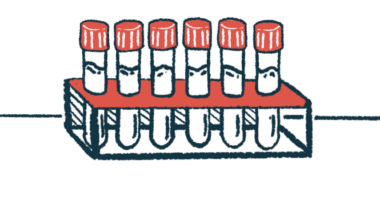Methotrexate Effective for ANCA-Associated Vasculitis Remission Maintenance Treatment, Study Finds

Methotrexate is an effective and safe option for remission maintenance therapy in patients with anti-neutrophil cytoplasm antibody (ANCA)-associated vasculitis (AAV), a study has found.
The study, “Methotrexate versus cyclophosphamide for remission maintenance in ANCA-associated vasculitis: A randomised trial,” was published in the journal Plos One.
AAV refers to three rare diseases: granulomatosis with polyangiitis (GPA), microscopic polyangiitis (MPA), and eosinophilic granulomatosis with polyangiitis (EGPA). Hallmarks of the disease are cell inflammation and the destruction of blood vessel walls.
A staged treatment approach has been shown to work in GPA and MPA consisting of remission-induction and remission-maintenance therapy. Remission-induction is usually a combination of glucocorticoids with Rituxan (rituximab) or cyclophosphamide, while maintenance therapy can be achieved using drugs such as methotrexate or azathioprine.
However, very few studies have investigated methotrexate as a maintenance agent in AAV. Therefore, researchers at the University of Parma in Italy aimed to investigate the safety and effectiveness of methotrexate as a maintenance therapy for AAV.
The study involved 71 patients (38% with GPA, 20% with MPA, and 42% with EGPA) who had been diagnosed at the Parma University Hospital’s Nephrology Center between 1997 and 2011.
Patients were treated with cyclophosphamide in the induction phase. Then, patients who achieved remission in this phase were randomized to receive either methotrexate or cyclophosphamide as a maintenance therapy for 12 months. After treatment, patients were followed for an additional 12 months.
The study compared the effectiveness of the drugs on two subgroups, GPA+MPA and EGPA, and is the first of its kind to include EGPA patients.
There were no significant differences in median relapse-free survival times, renal function, and proteinuria (loss of proteins in urine) between the cyclophosphamide and methotrexate groups. No significant differences in the percentage of adverse events were observed, either.
Comparison of relapse rates, relapse-free survival, and overall survival in the GPA+MPA and EGPA subgroups also did not show significant differences in cyclophosphamide and methotrexate treatments.
Although the study is limited by small sample sizes and a long enrollment period, the authors concluded that methotrexate “appears an effective and safe maintenance agent in AAV, also in the long term. Similar to GPA and MPA, EGPA patients with poor-prognosis factors may benefit from a staged induction-maintenance approach.”






